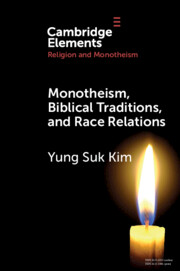“Concisely describing how ‘the body of Christ’ must be reimagined as ‘the Christic body,’ Kim’s argumentation has wide-reaching implications for those of us who fight for liberation and justice within church and society. Providing a launching point that will allow scholars and pastors to teach and model ‘soft-union’ in Christ while uplifting particularity in communion, Kim’s interpretation of Pauline theology and ethics will enliven conversations in the classroom and the church for years to come.
—Angela Parker, Assistant Professor of Biblical Studies, The Seattle School of Theology & Psychology
“Yung Suk Kim offers fresh insight into the heart of Paul’s theology: the body of Christ. Interestingly, Kim challenges the reader by reconstructing Christ’s body as a union in solidarity with those on the margins, especially in the hierarchical systems prevalent in the Roman imperial society and culture. No doubt, his theological reimagination can empower today’s Christians to resist unity without diversity in the so-called post-truth era of Trump. This little but powerful book thus holds onto hope for embodying Paul’s teaching in a more responsible manner.”
—Sung Uk Lim, Assistant Professor of New Testament, College of Theology & United Graduate School of Theology, Yonsei University
"With illuminating analysis of key texts, Kim offers a concise and timely understanding of the body of Christ in Paul's letters that challenges hegemonic models and reminds us that care for the poor and pursuing justice for the weak of society are at the heart of the gospel and Christian living."
—Timothy Milinovich, Associate Professor & Chair of Theology, Director of Catholic Studies, Dominican University






